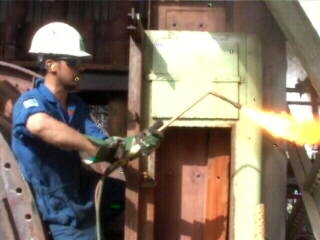Violence and Reform
Al-Qaeda's challenge to the House of Saud
 The recent attacks in Saudi Arabia demonstrate just how fragile the House of Saud really is. Will it be able to deal with the challenges posed by Al-Qaeda?
The recent attacks in Saudi Arabia demonstrate just how fragile the House of Saud really is. Will it be able to deal with the challenges posed by Al-Qaeda?
Home video footage shows suicide bombers in Riyadh driving their car to blow up a housing compound. Then a deafening noise as the car explodes to shouts of 'Allah-u-akhbar!'. So far, they have not been able to seriously disrupt oil production and there's no danger of a mass exodus of foreign workers. "I think we are safer here than we were in our home country," claims worker Fred Van Der Vyyer. But that could quickly change. Although the House of Saud is reluctant to admit the seriousness of the problem, it has recruited Islamist mediators to try and disarm the fighters. "I am quite optimistic that this violence will end in a matter of months," states mediator Mohsen Awajy. "But there are still leaders resisting and objecting to our initiative." Even if the government does control the militants, they still face other huge challenges. The population is growing at breakneck speed and even the oil revenue can't provide enough jobs to keep up. Reformers criticise the lack of democracy and the dominance of the puritanical Wahhabi school of thought. Reforms are moving at snail pace, increasing frustrations. As lawyer Bassam Alim states: "Only Allah knows where our country is going."
Paul Eedle
FULL SYNOPSIS

